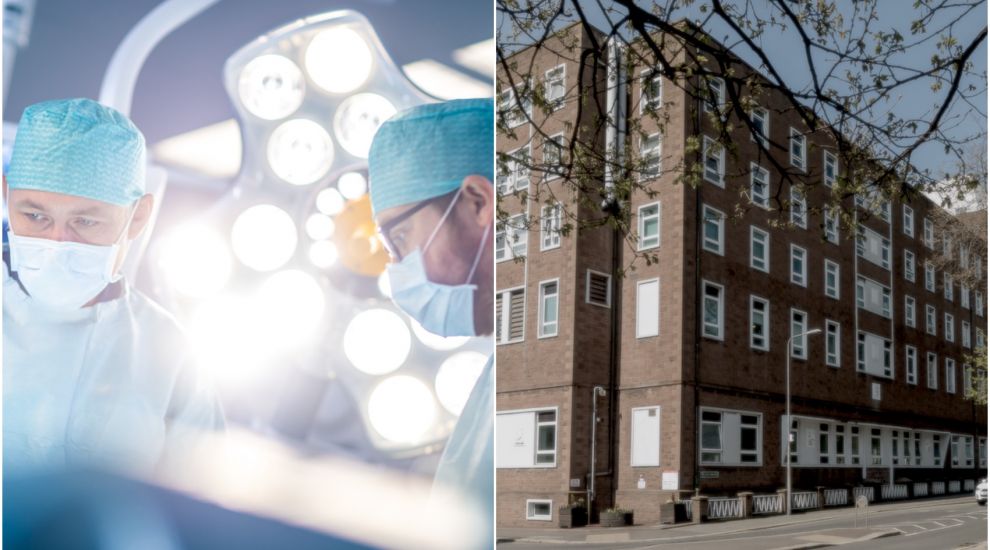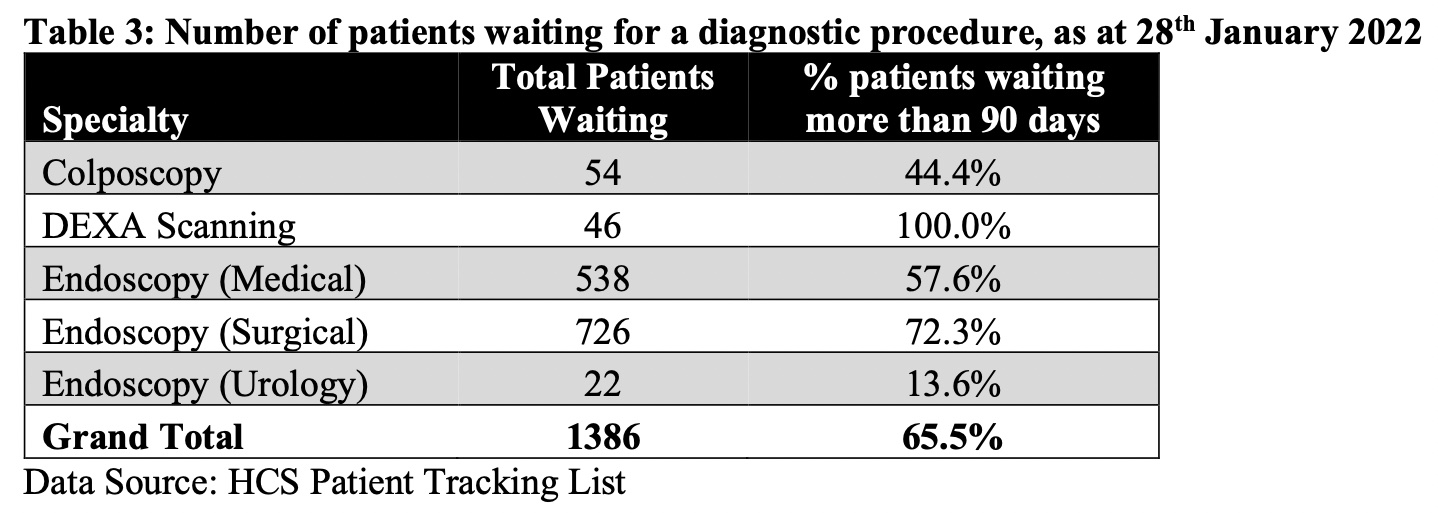


The number of people waiting for a diagnostic procedure to screen for cancer or other conditions has swelled to nearly 1,400 – a 75% rise on pre-pandemic levels.
Figures newly published by the Health Minister have shown that 791 people were on the waiting list at the end of 2019. By the end of 2020, this had increased to 989.
However, as of last week, there were 1,386 people waiting for a diagnostic procedure – with around three in five of them having to wait more than 90 days to be seen.
The bulk of the backlog – 1,286 - relates to endoscopy procedures.
Endoscopy involves looking at organs inside the body with a thin and flexible tube with a light and camera called an endoscope. Images of the inside of the body are then surveyed by medics on a screen, helping them to understand the potential source of unusual symptoms and screen for cancer and other conditions.
As of last Wednesday, 54 patients were awaiting a colposcopy. It is a procedure used to look at the cervix and lower part of the womb in detail if a cervical screening finds abnormal cells in the cervix.
More than 20 of those patients had been waiting more than 90 days.
All 46 of the patients awaiting a DEXA Scan had been on the list for more than 90 days.
DEXA scans examine bone density and are used to diagnose osteoporosis, a condition that weakens bones and makes them more likely to break, of which menopausal women are at greater risk due to declining oestrogen levels.

Pictured: Waiting list figures provided by the Health Minister.
The figures were released by the Health Minister in response to a written question from Deputy Mike Higgins.
In his reply, Deputy Richard Renouf said that the significant increase in the endoscopy waiting list was an area the Health Department is specifically working on tackling.
He explained that the pandemic had greatly reduced the number of procedures that could take place.
He added: “The Royal College of Physicians and Public Health England released guidelines for aerosol generating procedures (AGP) resulting in the adaptation of Infection Prevention and Control (IPAC) guidelines to necessitate downtime and enhanced cleaning between procedures to ensure sufficient air changes.”
However, Deputy Renouf said a new Faecal Immunochemical Testing programme (FIT) had been launched in December 2021 with an aim of “significantly” reducing the number of patients needing invasive screening methods like colonoscopies and flexible sigmoidoscopy, which is offered to members of the public in their 60th year.
FIT involves testing stools, which can help identify signs of bowel disease or abnormalities which may develop into cancer.
Deputy Renouf said that the programme was already having an impact, with waiting list growth having slowed since.
The Minister also noted that “discussions with the HCS Endoscopy team are taking place to increase the number of endoscopy suite sessions that are available on a weekly basis” and that the Care Group management team were “exploring opportunities” for external help to “expedite recovery to pre-pandemic” waiting list levels.
Comments
Comments on this story express the views of the commentator only, not Bailiwick Publishing. We are unable to guarantee the accuracy of any of those comments.